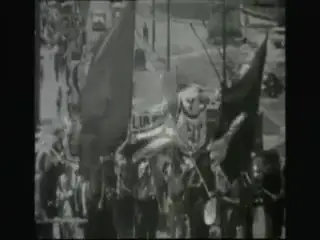Authoritarian regimes -ideologically inspired by the National Security Doctrine- swept across the length and breadth of South America in the geopolitical context of the Cold War. The growing mobilisation of trade unions, student unions, and peasant movements with demands for better living and working conditions, confronted conservative forces and violent parapolice and paramilitary groups. In a polarised global context, the formation of guerrilla and insurgent groups in the Global South was viewed with intense concern by those with business interests and the large landowners, who tried to maintain their privileges. Repressive action was presented as a necessary measure against the risk of communism and social disorder.
A series of coups d’états led by the armed forces, backed by powerful economic groups, sought to stop the mobilisation of the popular masses and to eliminate the leaders and members of these popular groups. The first major landmarks for the spread of authoritarianism across the region were the Paraguayan coup d’état in 1954 and the Brazilian coup d’état in 1964.
Since the beginning of the 1970s, political repression had been unfolding within each of the countries. These repressive activities progressively assumed a regional dimension with coordinated operations for the identification and the persecution of political opponents outside of their countries of origin, as well as the illegal transfer and assassination of political exiles.
A consecutive series of coups d’états erupted in Bolivia in 1971 and in Uruguay and Chile in 1973.
Between 1973 and 1975, the extreme-right-wing group “Alianza Anticomunista Argentina” (Argentine Anticommunist Alliance), known as the Triple A, planned and orchestrated the capture and assassination of hundreds of people. At the end of February 1974, the heads of the police forces of Argentina, Bolivia, Chile, Paraguay and Uruguay met in Buenos Aires, with the objective of exchanging information and knowledge regarding the insurgent groups of their respective countries. Various police officers were already conducting undercover operations beyond national borders, with the support and complicity of police authorities.
Numerous instances of extrajudicial kidnappings, torture and assassinations took place in the years leading up to the formal establishment of Operation Condor, which only occurred at the end of November 1975.
Although Argentina had ended up being a country of asylum and refuge for the politically persecuted, it had, actually, been involved in transnational repression operations since the 1970s and increased its participation after the 1976 coup d’état.

